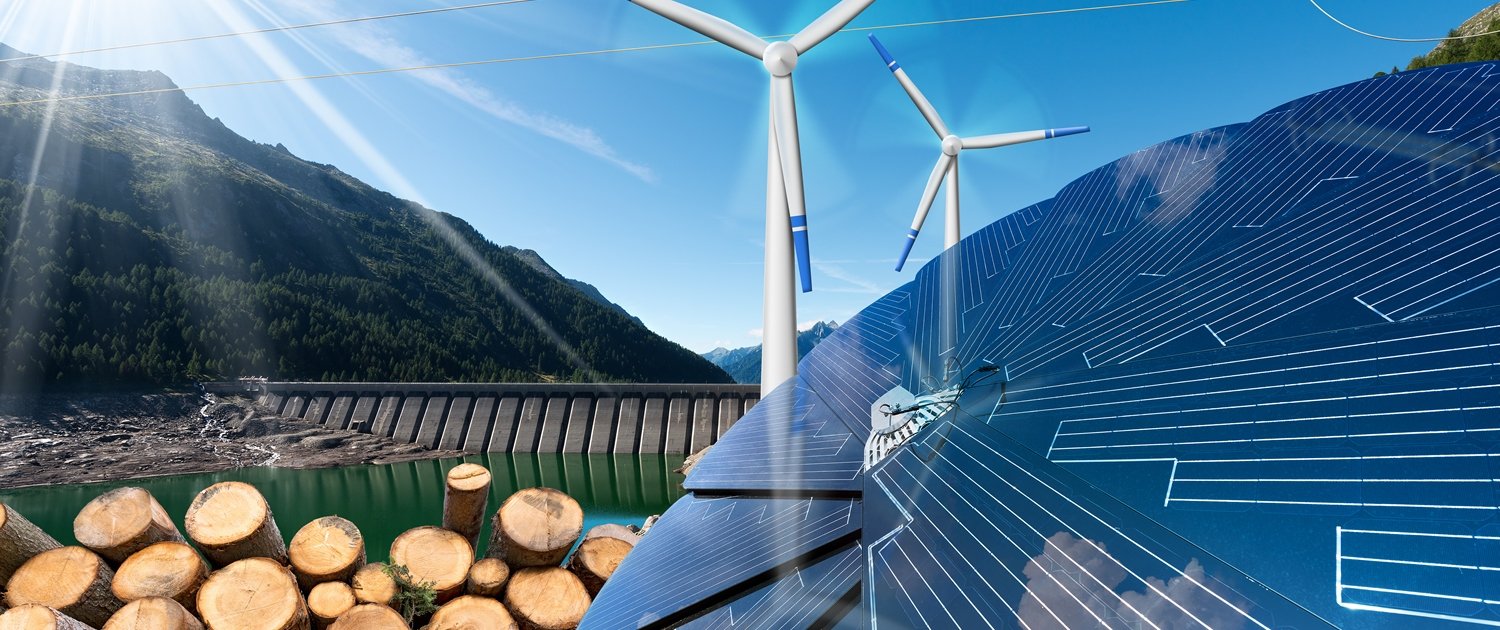What strategies can be used to increase energy supply?
The world currently faces the challenge of increasing energy supply in a way that:
- Minimises environmental harm
- Remains cost-effective
- Fits current technology
- Avoids increasing energy insecurity.
Energy is typically delivered as electricity. This can be generated by burning fossil fuels or mechanically using wind and water to turn turbines. There are two main strategies available for increasing energy supply:
- Continuing to use non-renewable fossil fuels and nuclear power. This could involve using technology to extract fossil fuels, such as fracking.
- Develop renewable energy sources that are sustainable and less damaging to the environment.
The graph below shows the fuels used to generate electricity around the world.
Non-renewable
Non-renewables are the most commonly used energy source worldwide. The most accessible fossil fuel resources have been removed from the ground, as this makes the most economic sense. However, mining is becoming increasingly complex as we exploit resources deep underground.
Rising global warming and climate change concerns have prompted many governments to reduce coal, oil, and gas consumption. Burning these fossil fuels releases vast amounts of carbon dioxide and other greenhouse gases into the atmosphere. Fossil fuels currently dominate the global energy supply, providing the majority of energy worldwide. The graph above shows that approximately two-thirds of the world’s electricity is generated by burning these fuels.
In the future, non-renewable energy resources will become too expensive to extract economically and environmentally. Despite their environmental impact, fossil fuels will remain important for some time.
Nuclear power is a non-renewable energy resource that uses uranium as a raw material. Water is heated by nuclear fission to create steam to drive turbines.
Renewable
Renewable energy resources are increasingly being used to generate electricity. As renewable energy becomes more efficient and valued, its role in global energy production will become more critical.
Below are the advantages and disadvantages of various renewable energy resources.
Biomass
Biofuels, or biomass, are often considered a relatively modern energy source. Still, they include one of humanity’s oldest fuels – wood, which remains a crucial energy source in many low-income countries (LICs). Modern biofuels include:
- Biodiesel and ethanol are produced from crops like sugarcane and soybeans.
- Methane gas is collected from decomposing waste in landfill sites.
Advantages
- Vegetation grown in different environments can be used
- Low-tech organic matter, such as wood and manure, can be used
Disadvantages
- Land that could be used for agriculture is sometimes used to grow vegetation for biomass
- Burning biomass contributes to carbon emissions
- Deforestation occurs in tropical rainforests to make way for commercial biofuels
Wind
Wind power uses the kinetic energy of moving air to turn turbines, generating electricity. It is a clean, renewable, and increasingly cost-effective energy source that has grown rapidly in recent years. Wind farms can be onshore or offshore. Offshore installations often benefit from more substantial and consistent winds. While wind power is environmentally friendly, challenges include visual impact, noise pollution, and the occasional threat to wildlife like birds and bats. Nevertheless, it is vital to the global push for greener energy.
Advantages
- There is considerable potential for wind energy in the UK. Wind already accounts for 10% of electric production
- Jobs are created in the local area in manufacturing and maintenance
Disadvantages
- Turbines only generate electricity when there is wind
- It is expensive to construct and maintain wind turbines
- Some consider them unsightly, and land-based wind farms often face strong objections
Hydro-electric power (HEP)
Hydroelectric power generates electricity by harnessing the energy of flowing or falling water, typically using dams built across rivers. It is a reliable, renewable, and efficient energy source that plays a significant role in global electricity production. However, large-scale projects can have significant environmental impacts, such as habitat destruction, disruption of aquatic ecosystems, and displacement of local communities. Despite these challenges, hydroelectric power remains a crucial contributor to the transition towards sustainable energy.
Advantages
- HEP is very efficient
- Suited to remote, upland environments
- Isolated communities can be supplied with energy using micro-hydro schemes
- Reservoirs can be used to stock fish, improving the diet of local people
- Reservoirs can control flooding downstream
Disadvantages
- Dams and reservoirs lead to the displacement of people, loss of farmland and natural environments
- Dams and reservoirs are very expensive to construct
Tidal
Tidal power harnesses the energy of tides to produce electricity. The first large-scale tidal power plant began operating in France in 1966. Over time, proposals have been made to utilise tidal energy from the River Severn estuary, but environmental and wildlife concerns have posed significant challenges. Another experimental tidal energy project is located at the Race, between Alderney, the Channel Islands, and France’s Cotentin Peninsula.
Advantages
- Effective in areas that experience a high tidal range
- Tidal barrages can protect coastal settlements from sea level rise and storm surges
Disadvantages
- Tidal barrages are very expensive
- Tidal barrages can harm marine ecosystems and fish migration
Geothermal
Geothermal energy is the heat stored within the Earth, accessed by drilling deep into the crust. It is used to generate electricity and supply hot water to homes. This energy source is cost-effective, reliable, sustainable, and environmentally friendly. However, its use has largely been confined to regions near tectonic plate boundaries.
Advantages
- Very effective in areas of volcanic activity
- Produces vast quantities of cheap energy
- How water can be used for heating homes, industrial processes and swimming pools
Disadvantages
- Warm water released into rivers and the sea can harm marine ecosystems
- Electric generation requires the construction of reservoirs
Wave
Wave power captures energy from the motion of waves to generate electricity. This form of energy holds great potential, and ongoing research aims to create a highly efficient wave energy converter.
Advantages
- Can provide isolated coastal settlements with energy
Disadvantages
- Very expensive to construct
- Wave energy is inconsistent
Solar
Solar power harnesses energy from the sun’s rays to produce electricity or heat through photovoltaic cells or solar thermal systems. It is a clean, renewable energy source that can be deployed on a small scale, such as rooftop panels, or in large-scale solar farms. Solar energy is widely regarded for its minimal environmental impact and ability to operate in diverse locations. However, its efficiency can be affected by weather conditions and daylight availability, and the initial installation costs can be high. Despite these challenges, technological developments and falling costs have made solar power an important energy solution.
Advantages
- Very effective in areas with high sunshine totals
- Very effective in converting sunlight to electricity
Disadvantages
- Energy generation depends on the sunlight amount
- Expensive
- This can involve using fields that were previously used in food production
A crucial aspect of any strategy to increase energy supply is achieving the right energy mix. This mix should:
- Address both current and future energy needs
- Optimise the use of domestic energy resources
- Consider the strengths and limitations of available technologies – for example, nuclear power may not be suitable for a low-income country (LIC). In contrast, small-scale hydroelectric power schemes could be more appropriate.
Related Topics
Use the images below to explore related GeoTopics.



